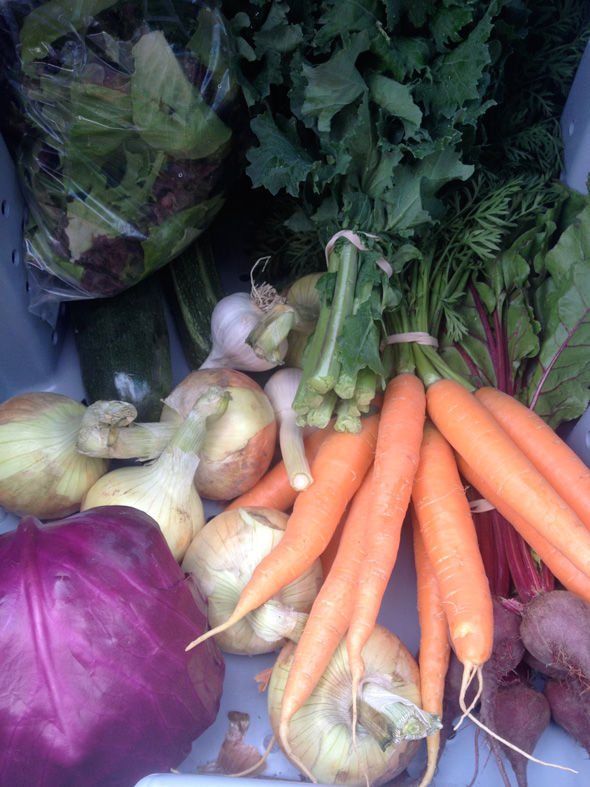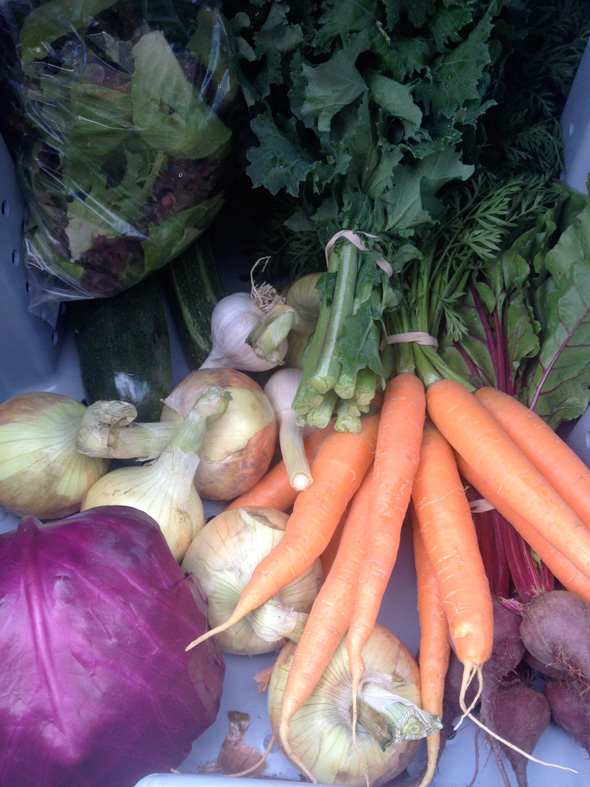
From Slow Train Farm —
Fall is here on Slow Train Farm and it is time to ferment. We keep a variety of different fermented pickles for winter and they are all very easy to prepare. They keep for a minimum of six months in our root cellar and they are a much cheaper and healthier alternative to the vinegar-based canning we used to do so much of.
By far our favourite ferment is kimchi, but we make relish, dill pickles, sauerkraut, and other great treats using this or similar fermentation methods. We use three-gallon or five-gallon stoneware crocks or one gallon-glass jars for fermented goods. Here are the ingredients we use in our kimchi and a quick overview of how to prepare this great winter staple. This list is by no means limited; many many vegetables work in this recipe. The measurements vary on your supply. We use great quantities to fill a five-gallon crock. I would recommend about 2 – 3 cloves of garlic and one small onion per quart of kimchi.
Kimchi & Fermented Veggies
Ingredients
- any kind of radish
- turnip
- carrots
- savoy or Asian cabbage
- ginger
- garlic
- onion
- hot chilies
Method
Prepare all the vegetables except for the garlic, ginger, onion, and chilies. Coarsely slice the cabbage and slice the radish, turnips, and carrots. Mix a brine of 4 cups of water for every 3 tablespoons of salt, enough to cover all of the vegetables. Use a crock or large glass jar to soak the vegetables in the brine overnight.
Chop the garlic, grate the ginger, and chop the chilies; kimchi can absorb a lot of spice. Mix these spices together.
Drain the brine off the vegetables and keep it aside. If the vegetables taste salty, rinse them.
Mix the vegetables with the spices and pack them tightly into the crock or glass jar. Add the brine until it just covers the vegetables. The vegetables need to be submerged in the brine. Use a weight such as a plate with a (clean!) heavy stone or a plastic zipper bag full of brine on top.
Ferment in a warm place. After about a week, it will taste ready and you can move it to the refrigerator or cellar. We have kept many jars full of kimchi, sauerkraut, or fermented pickles in the root cellar well into the spring.

Photo: Stephanie Bird

